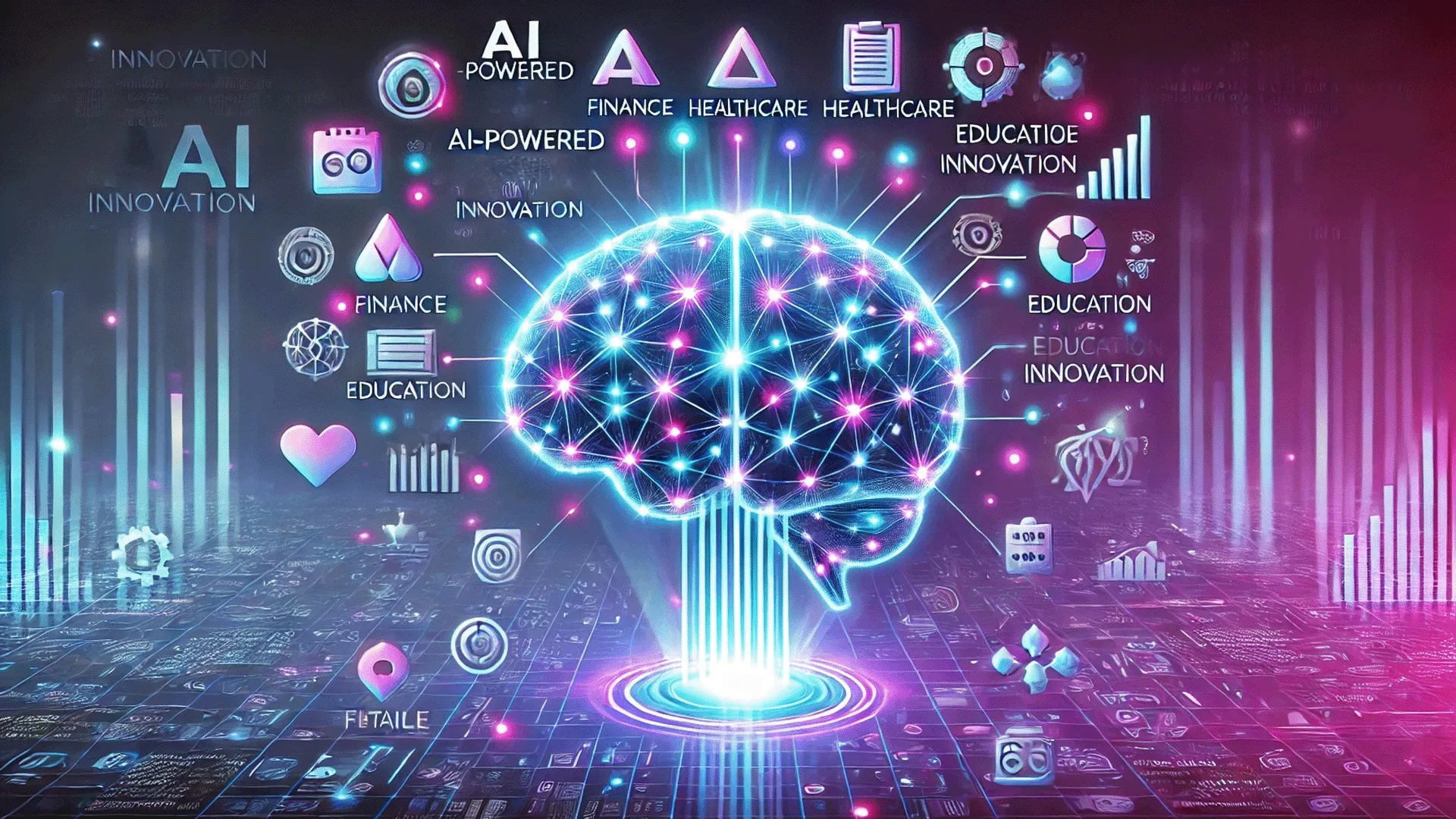In today’s fast-paced world, businesses across the globe are seizing the opportunity to enhance their operations, enrich customer experiences, an
In today’s fast-paced world, businesses across the globe are seizing the opportunity to enhance their operations, enrich customer experiences, and foster innovation through the transformative power of artificial intelligence (AI). The integration of AI has gone beyond theoretical applications; it is now driving tangible results across industries. This shift has been enabled by advancements in generative AI and machine learning, underpinned by platforms like Microsoft’s AI solutions.
This comprehensive overview explores how AI is revolutionizing core aspects of businesses by focusing on four primary areas: enriching employee experiences, reinventing customer engagement, reshaping business processes, and accelerating innovation. From global giants to local enterprises, these transformations showcase how AI is unlocking new potential and reshaping the competitive landscape.
Enriching Employee Experiences
AI is streamlining repetitive tasks, enabling employees to focus on strategic and creative efforts that contribute to job satisfaction and productivity. Numerous organizations have adopted Microsoft 365 Copilot and other AI-powered tools to support their workforce:
- Access Holdings Plc integrated Microsoft 365 Copilot, reducing software coding times from eight hours to just two. This shift allowed developers to focus on problem-solving rather than routine coding tasks, enhancing their role satisfaction and output quality.
- Adobe implemented generative AI capabilities within Adobe Experience Cloud, creating more collaborative and efficient workflows for marketers.
- Amadeus leverages Copilot to distill complex email threads and consolidate diverse data, empowering employees to engage in more value-added tasks.
- ANZ has rolled out Microsoft 365 Copilot and GitHub Copilot to foster productivity, enabling teams to navigate tasks with ease and reducing manual workload.
Case Studies of Success
- Aztec Group piloted Copilot with 300 employees, revealing “unlimited” applications that streamlined operations and reduced time spent on administrative duties. This led to a broader deployment plan, improving productivity and job satisfaction.
- Axon Enterprise utilized Azure OpenAI Service to create Draft One, a tool that slashed reporting times by 82%, allowing police officers to spend more time in community engagement.
Key Takeaway: By automating mundane tasks, AI frees up valuable human resources, allowing employees to channel their energy into more innovative and satisfying work.
Reinventing Customer Engagement
In the digital age, customer experience is a critical differentiator. AI helps organizations personalize interactions, streamline communications, and enhance overall customer satisfaction.
- Absa integrated Microsoft Copilot to automate various processes, cutting down administrative workloads and allowing customer service representatives to focus on more meaningful interactions.
- BMW Group utilized AI in its MyBMW app, which manages 450 million daily requests and 3.2TB of data, ensuring seamless user experiences.
- Bradesco Bank’s virtual assistant BIA, powered by Microsoft Azure, reduced customer response times dramatically, shifting from days to just hours and improving overall satisfaction.
Elevating Customer Experiences
- Cemex launched an AI-powered tool named Technical Xpert for sales agents, achieving a significant 80% reduction in time spent searching for product information.
- City of Madrid developed a multilingual virtual assistant for tourists, powered by Microsoft Azure OpenAI, which provides personalized responses in over 95 languages, enhancing the city’s appeal to international visitors.
Key Takeaway: By harnessing the capabilities of AI, businesses can offer tailored and responsive customer experiences that increase engagement and loyalty.
Reshaping Business Processes
AI’s potential extends beyond minor optimizations; it fundamentally changes how businesses operate. Companies are applying AI across marketing, supply chain, finance, and human resources to uncover new growth opportunities.
- Accelleron streamlined agent onboarding from two days to just 30 minutes by leveraging Microsoft Power Platform.
- Fast Shop migrated to Microsoft Azure, building a self-service culture that boosted efficiency, reduced costs, and expedited decision-making.
- Grupo Bimbo used AI to modernize its manufacturing processes, resulting in lower downtime and increased productivity.
Check out how Robot Revolution can benefit your daily life, click here to find more.
Innovating Process Workflows
- Insight Canada implemented Microsoft 365 Copilot to automate and enhance daily functions, realizing a 93% productivity gain across departments such as sales and human resources.
- National Bank of Greece developed an AI-driven Document AI solution, boosting document processing accuracy to 90%, transforming its operational efficiency.
Key Takeaway: AI enables businesses to transform existing processes and introduce innovative, efficient workflows that support sustained growth.
Bending the Curve on Innovation
AI is speeding up the pace of innovation across industries. From product development in automotive sectors to rapid prototyping in manufacturing and breakthrough research in pharmaceuticals, AI helps companies push the boundaries of what is possible.
- Air India applied Microsoft 365 Copilot across its departments to gather critical operational data, helping streamline decision-making and flight punctuality.
- Denso is exploring human-robot collaboration with the help of Azure OpenAI Service to create robots capable of working seamlessly with people.
- Georgia Tech utilized Azure OpenAI Service for rapid data classification and predictive modeling to support electric vehicle charging infrastructure.
Transformative Impact on R&D
- Novo Nordisk has published findings on using AI for advanced cardiovascular risk assessments, showing superior predictive capabilities compared to existing clinical standards.
- Schneider Electric deployed AI solutions to improve productivity and energy efficiency across its operations, facilitating sustainable innovation.
Key Takeaway: By integrating AI, companies can reduce time-to-market and foster a culture of rapid iteration and creative solutions, securing a competitive advantage.
AI in Specific Industries: A Deep Dive
Healthcare
AI is revolutionizing healthcare by providing tools that help professionals make data-driven decisions faster and with higher accuracy.
- Chi Mei Medical Center introduced an AI assistant built on Azure OpenAI Service, easing workloads for healthcare staff and optimizing patient care.
- Providence partnered with Microsoft and Nuance to develop generative AI applications that reduce physician burnout and improve care delivery.
Financial Services
AI’s ability to analyze large datasets in real-time is helping financial institutions stay ahead of fraud and make better investment decisions.
- Nest Bank reported doubling its sales and increasing daily transactions from 60,000 to 80,000 with the integration of Microsoft 365 Copilot and Azure OpenAI.
- Saphyre automated 75% of manual financial trading workflows, showcasing the immense potential for cost reduction and efficiency gains.
Retail
AI enables retailers to offer more customized shopping experiences and optimize supply chains.
- Boyner boosted its e-commerce performance through Azure, improving engagement and conversion rates.
- ASOS used Azure AI Studio to enhance customer interactions, blending AI-driven personalization with humor and natural conversations.
Education
Educational institutions are leveraging AI to improve student learning and administrative efficiency.
- University of Sydney developed a self-serve AI platform, empowering faculty to create custom chatbots for enhanced onboarding and feedback mechanisms.
- Khan Academy implemented AI tools in partnership with Microsoft to save educators time and enrich learning experiences for students.
Key Takeaway: AI is not a one-size-fits-all solution. Industries are tailoring AI to address their unique challenges, leading to significant improvements in efficiency, customer satisfaction, and innovation.
Future Outlook: The Potential of AI
The future of business is intertwined with AI-driven advancements. A commissioned study by Microsoft and IDC, The Business Opportunity of AI, revealed that for every $1 invested in generative AI, organizations are realizing a $3.70 return. As AI continues to evolve, companies that embrace these technologies will likely maintain their competitive edge, discover new revenue streams, and pioneer industry shifts.
Key Recommendations for Businesses Considering AI Integration:
- Start with scalable pilot projects: Begin with projects that have measurable outcomes.
- Invest in employee training: Ensure your team is equipped to use AI tools effectively.
- Prioritize data security: Implement responsible AI practices to maintain trust and compliance.
Check out how Robot Revolution can benefit your daily life, click here to find more.


